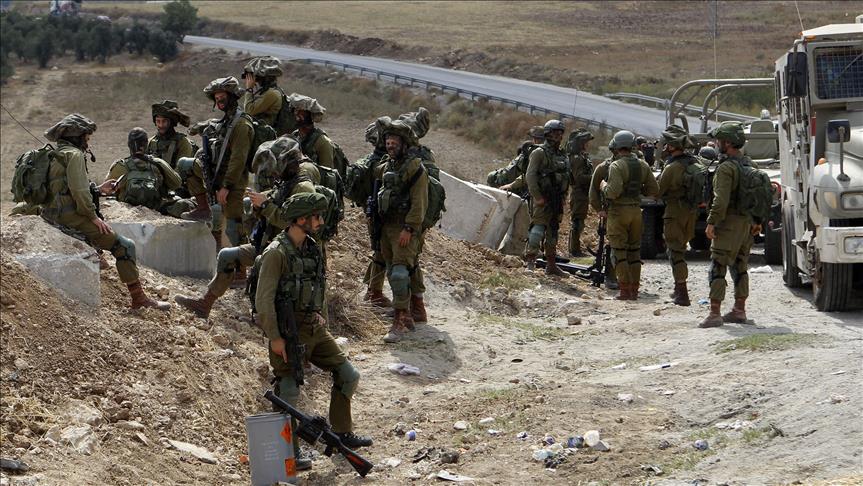Israel's longstanding policy of extrajudicial murder
Zionist operatives began policy of 'targeted killings' in 1944 - four years before Israel's establishment

Ramallah
By Amjad al-Nabhan
RAMALLAH, Palestine
Israel's longstanding policy of assassination -- or “targeted killings” -- is aimed at eliminating and demoralizing its adversaries, deterring attacks and downright revenge, say Palestinian experts.
Zionist operatives initiated the policy in 1944, four years before Israel’s establishment, when they assassinated Walter Edward Guinness, a British politician and businessman opposed to Jewish immigration to Palestine.
Since 1966, Israel has assassinated at least 366 Palestinian activists and resistance fighters, according to Al-Haq, a Palestinian human rights NGO.
The most recent of these was Ahmed Nasr Jarrar, a member of Hamas’s armed wing, who was killed by Israeli forces on Tuesday in the occupied West Bank city of Jenin.
Israel had accused Jarrar, 22, of killing an Israeli settler last month near Nablus.
According to Ismat Mansour, a Palestinian expert on Israeli affairs, Israel tends to commit two different kinds of assassination. In the first kind, he said, Israel publicly takes credit for the assassination with a view to bolstering confidence in the Israeli security forces.
“Jarrar had eluded the army for more than a month, undermining confidence in the army’s abilities,” Mansour said.
The second kind of assassination remains undeclared, Mansour explained, “like the murder of late Palestinian leader Yasser Arafat, who was poisoned by an unseen assassin”.
Israel murdered Arafat, Mansour believes, because he had posed a “strategic threat” to Israel.
In 2004, Arafat died mysteriously at the age of 75 amid Palestinian accusations that Israel was responsible.
Mansour also cited the 2004 assassination of Hamas founder Ahmed Yassin, who, he said, had been killed by Israel for “mere revenge” as the 67-year-old had posed no real threat to Israel at the time of his death.
Extrajudicial
Military expert Wasef Erekat says Israel seldom hesitates to murder Palestinians -- extra-judicially -- “even those, like Jarrar, with no proven charges against them”.
“The Israelis claim Jarrar killed a settler, but there is no proof of this,” Erekat told Anadolu Agency. “So they killed him to either hide the truth or hide their failure.”
He added: “It was the murder of someone who might not have committed any criminal act; who wasn’t given the chance to defend himself in court.”
According to Hafez al-Barghouthi, a prominent Palestinian writer and journalist, Israel's assassination policy can be divided into three main phases.
The first phase, he said, began following the launch of the Palestinian armed struggle in 1965.
During the 1970s and 1980s, he explained, Israel continued to target Palestinian leaders in Jordan and Lebanon until the signing of the 1993 Oslo Accords between Israel and the Palestine Liberation Organization (PLO).
Among the most prominent assassinations of this period, according to al-Barghouthi, were those of Fatah co-founder Khalil al-Wazir; Islamic Jihad founder Fathi Shaqaqi; and prominent Palestinian writer Ghassan Kanafani.
The second phase, al-Barghouthi said, came after Oslo, when Israel’s assassination policy focused mainly on Hamas leaders -- such as Ezzedine al-Qassam commander Yahya Ayyash -- following a wave of suicide bombings in Israel.
The third phase, according to al-Barghouti, began after the eruption of the Second Intifada (uprising) in 2000, during which hundreds of Palestinian resistance fighters and activists were murdered.
These included Abu Ali Mustafa, a leader of the Popular Front for the Liberation of Palestine, killed in 2001; and Raed al-Karmi, a commander in Fatah’s Al-Aqsa Martyrs' Brigades, killed in 2002.
Several Hamas leaders, too, were assassinated during this phase, including group founders Ismail Abu Shanab (2003), Ahmed Yassin (2004) and Abdel Aziz al-Rantisi (2004).
According to Ammar Dweik, head of Palestine’s Independent Human Rights Commission, all such “targeted killings” amount to “nothing less than extrajudicial murders and war crimes”.
Dweik went on to stress that, on several occasions, Israel’s “systematic” assassination policy had not spared civilian bystanders.
He cited the murder of Hamas leader Salah Shehade in 2002, when the Israeli Air Force dropped a one-ton bomb on Shehade's Gaza home, leaving the resistance leader -- along with 18 Palestinian civilians -- dead.
Anadolu Agency website contains only a portion of the news stories offered to subscribers in the AA News Broadcasting System (HAS), and in summarized form. Please contact us for subscription options.







